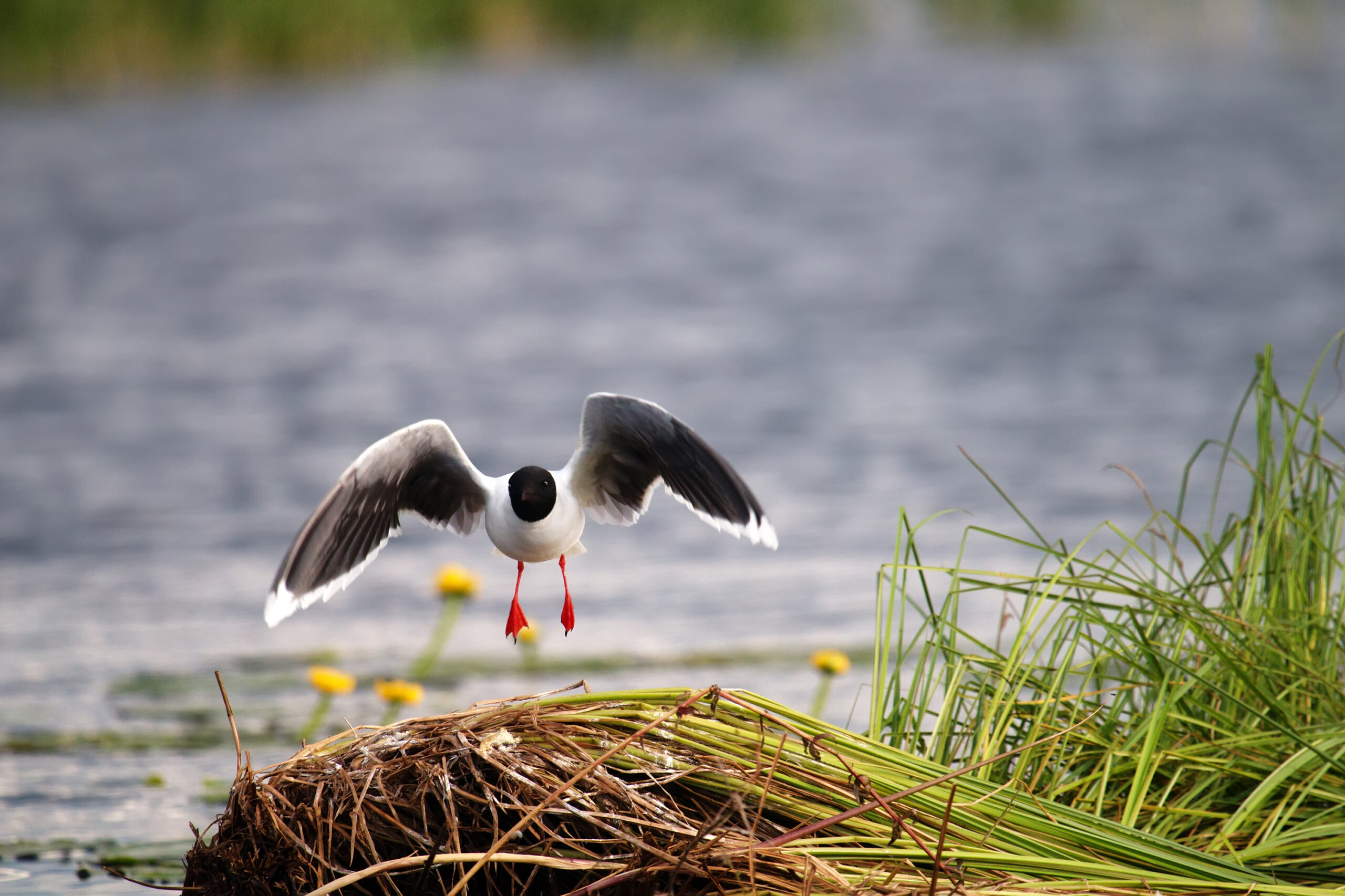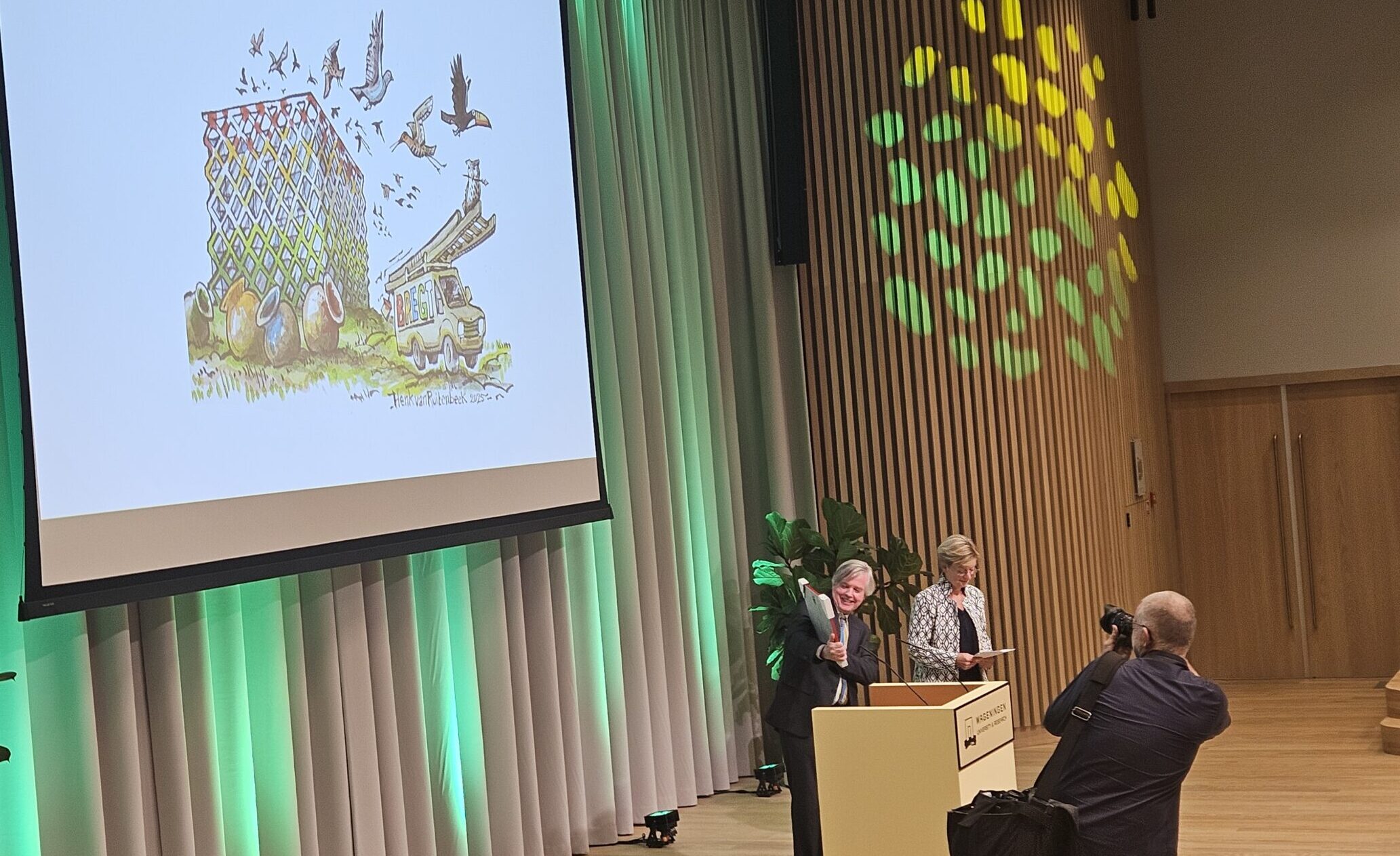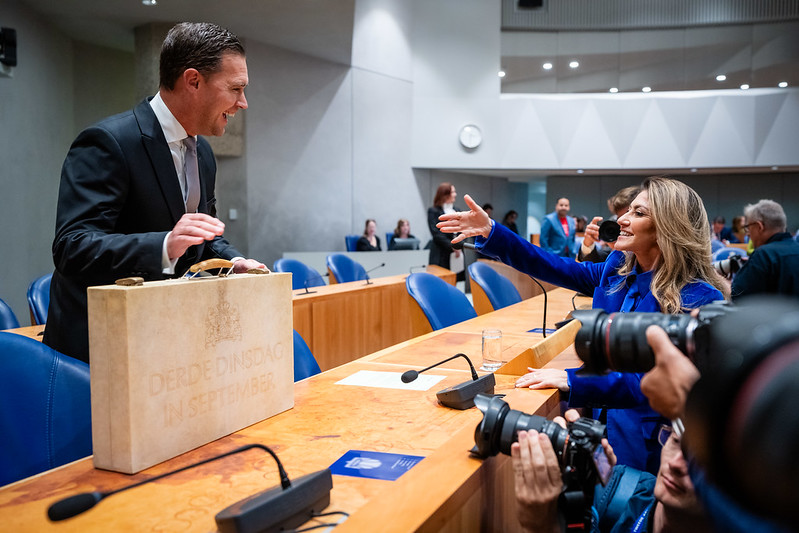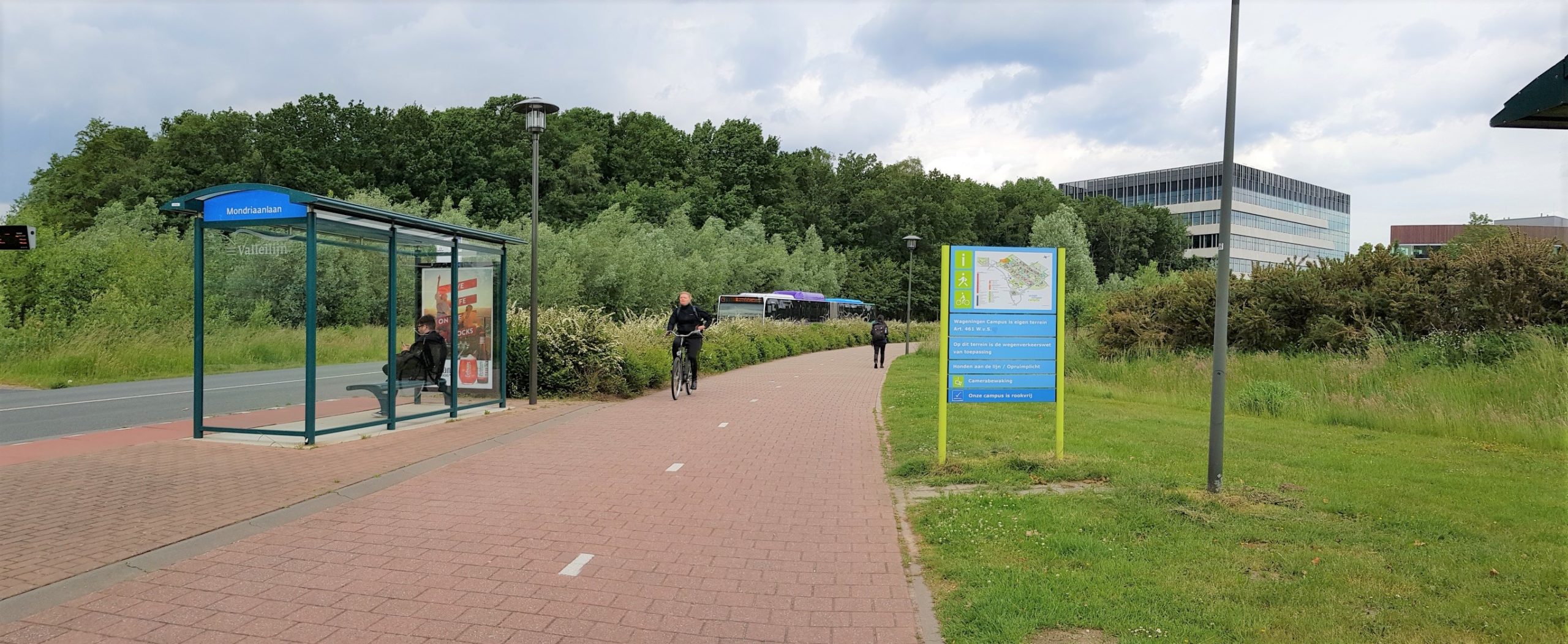The Wageningen proposal to spend some of the EU agriculture funding on landscape and biodiversity in the Netherlands fell on fertile soil with dairy farmer Alex Datema and biodiversity pioneer Louise Vet. But they have some reservations about it too. ‘It feels like money from our own pockets.’
Alex Datema, chair of the farmers collective BoerenNatuur, subscribes to the principles underpinning the Wageningen report, especially the suggestion that the Common Agricultural Policy (CAP) funding is needed to create a new model of agriculture that pays more attention to the environment, nature and climate change.
‘That CAP money currently goes into income support for farmers, but I don’t believe in that in the long term. I think we should stop paying farmers fixed subsidies, linked to a lot of demands. I’m in favour of the government targeting landscape restoration and meadow bird conservation with that money. And I’m in favour of having a choice as a farmer: is this right for my farm? If it is, then I will be rewarded for maintaining landscape features.’
And I’m in favour of having a choice as a farmer: is this right for my farm?
Alex Datema
Datema is a dairy farmer in Briltil, in the province of Groningen. He farms 70 hectares in a wet area, so he has a large number of ditches to maintain, and he doesn’t get any money for that at present. Datema is already involved in meadow bird conservation together with neighbouring farmers. He makes use of a subsidy for agricultural nature management, which he also uses to fund the creation of several hectares of herb-rich grassland and a marshland with groundwater levels almost at field level, and to delay mowing to protect meadow birds.
He is also quite willing to line all his ditches with strips of herb-rich grassland. Such strips are good for insects, clean surface water and birds. ‘In my situation it is better to farm a bit more extensively on all my land, creating more biodiversity with slightly lower production levels, than to plough over a couple of hectares of grass and replace it entirely with herbal plants. Being able to tailor your approach like that is the nice thing about this arrangement.’
Pooling
But Datema has some reservations too. ‘To the farmers, CAP funding feels like a bit like money from their own pockets. We’ve always received that money. What is more, it is only a few hundred million euros per year, and I’ve been reading that all sorts of new goals have been added, like climate targets, the nitrogen problem and environmental issues. It’s a limited budget, so I think the government will have to make some choices. I’d say, finance landscape and nature with this money and climate targets in some other way.’
Louise Vet agrees entirely. A former director of the Netherlands Institute of Ecology (NIOO-KNAW) and an emeritus professor of Ecology at WUR, Vet is chair of the Delta Plan Biodiversity Recovery Foundation. This coalition of nature organizations, farmers, scientists, banks and other companies aims at restoring biodiversity. Vet: ‘These Wageningen recommendations are entirely in line with the Delta Plan. Bravo.’
And hopefully waterboards are going to reward farmers for steering clear of chemical pesticides
Louise Vet
Vet strongly supports pooling subsidies. ‘You can use this CAP money to bolster landscape and biodiversity, but there is also going to be a climate fund with which you can compensate farmers for raising the water level in peatland areas. The Rabobank and FrieslandCampina are making use of the Biodiversity Monitor for Dairy Farming so they can charge a slightly lower interest on loans and pay a slightly higher price for milk produced by nature-inclusive methods. And hopefully waterboards are going to reward farmers for steering clear of chemical pesticides and producing clean surface water, which reduces purification costs. Such approaches will generate a business model for nature-inclusive agriculture.’
Long-term rewards
Vet suggests simplifying matters by basing all the financial compensation on the same set of key performance indicators (KPIs). ‘And preferably indicators which land users can have a say in. Not the number of meadow birds on the land, for instance, but landscape diversity such as the percentage of rich grassland, hedges, hedgerows, ditch banks, field edges, thickets, and the water level – or emissions of ammonia and greenhouse gases.’
Another crucial point, Vet adds, is that the compensation should be long term. ‘Here and there, for example in the Ooijpolder near Nijmegen, farmers are already compensated for maintaining hedges and thickets from a government fund for landscape elements. They don’t get much, but the compensation is guaranteed for 30 years. That gives a farmer security. Which is necessary, especially now farmers have the option of planting hedges and hedgerows again. It will take decades for a hedgerow like that to mature, so you must finance it long-term too.’
The question is whether this is pays off for farmers now. Datema, who receives a subsidy of 5000 to 6000 euros a year for meadow bird conservation: ‘For our farm, that funding is just one or two per cent of the turnover, but it is enough; we don’t make a profit on it but we can break even. But you should bear in mind that I’m not an average farmer.’
‘The farmers who have joined BoerenNatuur are already working with a different model of agriculture, which makes us the “easy” farmers. The question is how you convince the other farmers. I think you need to give them a higher subsidy or pool the various subsidies, and make the system more attractive on other points as well. And watch out for extra administration, inspections and fines, because that’s a very sore point for many farmers.’

 Alex Datema: ‘I’m in favour of the government targeting landscape restoration and meadow bird conservation with this money. And of having a choice as a farmer: is this right for my farm?’
Foto Shutterstock
Alex Datema: ‘I’m in favour of the government targeting landscape restoration and meadow bird conservation with this money. And of having a choice as a farmer: is this right for my farm?’
Foto Shutterstock


